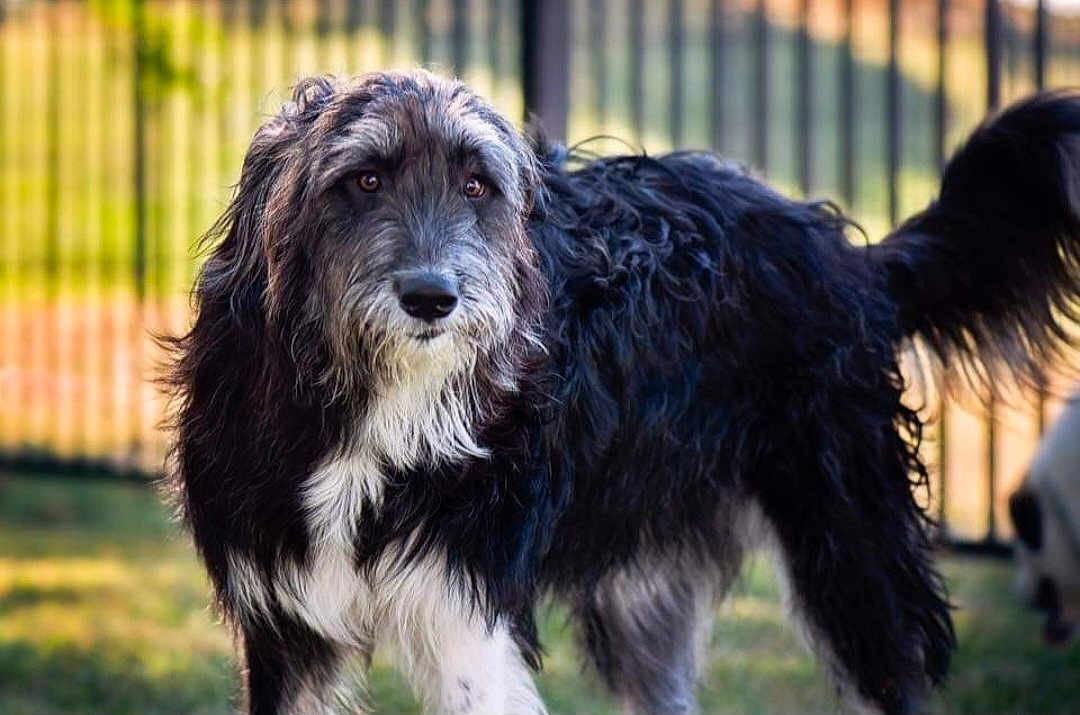
“The Pyrenean Shepherd, known as one of the oldest breeds originating from the Pyrenees mountains of France, has captured the hearts of many with its spirited nature and undeniable charm.”
Personality and Behavior of the Pyrenean Shepherd
Pyrenean Shepherds are renowned for their vivacious energy and exceptional intelligence. Since their inception as herding dogs in the rugged Pyrenees mountains, they have developed an unmatched agility and mental acuity. This breed thrives on activity and mental challenges, making them excellent companions for active individuals or families who enjoy outdoor pursuits.
These dogs are incredibly loyal and bond deeply with their families. They naturally exhibit a protective instinct towards their loved ones, making them excellent watchdogs. Yet, they are not overly aggressive and generally remain friendly towards strangers once they gauge no threat. Their alertness and quick reflexes are truly remarkable.
In terms of behavior, Pyrenean Shepherds can be a bit on the independent side, a trait inherited from their herding days. They are known for making their own decisions quickly and efficiently, which can sometimes be mistaken for stubbornness. However, this independence, paired with their intelligence, means they excel in problem-solving tasks and advanced training exercises.
“What makes the Pyrenean Shepherd unique is not just its herding abilities, but its capacity to form intuitive and profound bonds with humans, showcasing a rare combination of work ethic and affection.”
Meanings, History and Origins of the name Pyrenean Shepherd
The Pyrenean Shepherd, or Berger des Pyrénées in French, gets its name from the Pyrenees mountain range, which forms the natural border between France and Spain. Historically, these mountains provided a rugged terrain where this breed honed their herding skills, vital for managing livestock in the area.
The role of the Pyrenean Shepherd has always been that of a working dog, initially bred to herd sheep. Unlike other herding breeds that manage cattle or other large livestock, the Pyrenean Shepherd was adept at maneuvering over rocky terrains and handling sheep with its high energy and agility. These traits are as much a part of their heritage as their name.
The breed’s history dates back to medieval times, although it wasn’t until the early 20th century that they were officially recognized by dog breeding organizations. During World War I, Pyrenean Shepherds were used as courier dogs, demonstrating their loyalty and versatility. This historical background adds to the mystique and appeal of the breed.
Their name symbolizes their rugged origins and sturdy independence, sparking interest among dog lovers who are drawn to breeds with rich historical backgrounds and distinctive roles.
Popularity of the Pyrenean Shepherd
The Pyrenean Shepherd enjoys a modest but dedicated following. While it may not be as universally known as some breeds, its unique character and abilities have garnered substantial admiration in certain circles, particularly among herding dog enthusiasts and those involved in dog sports.
In English-speaking countries, such as the United States and the United Kingdom, the breed is recognized by major kennel clubs, including the American Kennel Club (AKC). Its presence at dog shows and competitions has helped increase its visibility and appreciation, although it remains a niche breed compared to more mainstream choices like the Labrador Retriever or the German Shepherd.
Globally, the Pyrenean Shepherd holds a stronger cultural presence in France and surrounding European countries, where its historical roots are deeply embedded. Its functional role in agriculture and its representation in regional folklore contribute to its enduring domestic popularity.
As dog ownership trends shift towards more sustainably raised and unique breeds, the Pyrenean Shepherd is experiencing a slight uptick in popularity, especially among those seeking dogs with distinctive backgrounds and capabilities.
Health and Care of the Pyrenean Shepherd
When it comes to health, the Pyrenean Shepherd is relatively robust, boasting a lifespan of around 15 years. However, like all breeds, they are prone to certain genetic conditions. Key health concerns include hip dysplasia, patellar luxation, and some eye conditions. Regular vet check-ups and a proactive approach to health can help mitigate these risks.
Diet is of paramount importance for this active breed. A balanced diet rich in proteins, healthy fats, and essential vitamins is crucial to maintain their high energy levels and muscular build. Consulting with a veterinarian for a tailored diet plan can ensure optimal health and performance.
Their coat, which can be rough-faced or smooth-faced, requires regular grooming. The rough-faced variety may need more frequent brushing to avoid matting, while the smooth-faced counterparts usually need less intensive care. Additionally, regular dental care, nail trimming, and ear cleaning should be part of their routine grooming regimen.
Given their high energy levels, Pyrenean Shepherds need ample exercise and mental stimulation. Daily walks, playtime in secure areas, and engaging activities like agility training or herding exercises will keep them happy and healthy.
Training and Education of the Pyrenean Shepherd
Training a Pyrenean Shepherd can be both an exciting and challenging endeavor. Their intelligence and eagerness to please make them quick learners, but their independent streak can sometimes lead to moments of defiance.
Early socialization is key for this breed. Introducing them to varied environments, people, and other animals from a young age will help them grow into well-rounded adults. Positive reinforcement techniques, including treats, praise, and play, work exceptionally well with this breed. They respond best to a consistent and patient approach, as harsh methods can lead to mistrust and behavioral issues.
Advanced training might include agility courses, obedience trials, and even herding work. These activities not only hone their physical abilities but also cater to their mental needs, reducing the risk of boredom-related behaviors such as chewing or digging.
Crate training can be beneficial for Pyrenean Shepherds, providing them with a safe and cozy space to retreat. This can also assist in housebreaking and reduce anxiety when traveling or during stressful events.
Undoubtedly, the effort invested in training a Pyrenean Shepherd yields rewarding results, making them an obedient and joyful companion.
Selecting the right dog breed is an important decision that should consider factors such as lifestyle, activity level, and personal preferences. For those who appreciate history, intelligence, and a bit of spirited independence, the Pyrenean Shepherd is an exceptional choice.
The significance of choosing the ideal breed cannot be overstated. The Pyrenean Shepherd, with its rich heritage and spirited personality, stands out as a breed that offers both companionship and adventure. Here at KingPet, we are delighted to see many Pyrenean Shepherds participating in our contests, showcasing their beauty and talents. Selecting this breed promises an engaging and affectionate partnership, filled with loyalty, activity, and endless delight.


































